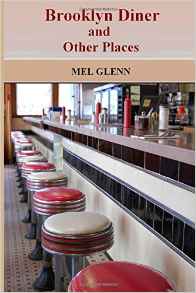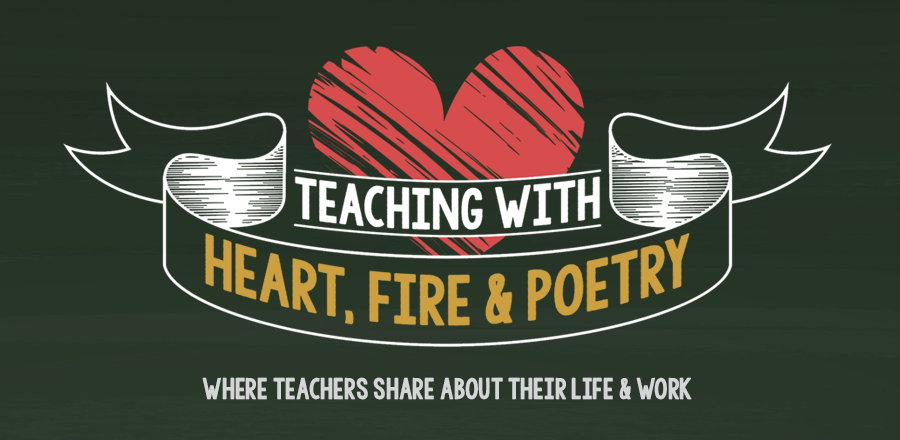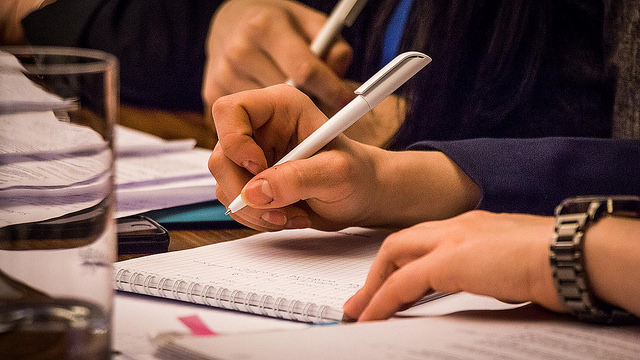 For 40 years, the Metropolitan Diary has been a cherished section of the NY Times. For the section, everyday New Yorkers write mini-essays that capture odd, fleeting moments of life in the Big City: an encounter on the subway, a conversation overheard in Central Park or a strange doing at the corner deli. In an effort to inspire students to write stories about their life in their communities and “practice being a citizen in a free democracy,” Cynthia McCallister and Kate Louis adapted the Diary’s approach for the classroom. It’s a masterful idea. The NY Times article, Fostering Selfhood and Inspiring Student Writers Using ‘Metropolitan Diary’ describes how they create the lessons and concludes with the following as the reasoning behind it all.
For 40 years, the Metropolitan Diary has been a cherished section of the NY Times. For the section, everyday New Yorkers write mini-essays that capture odd, fleeting moments of life in the Big City: an encounter on the subway, a conversation overheard in Central Park or a strange doing at the corner deli. In an effort to inspire students to write stories about their life in their communities and “practice being a citizen in a free democracy,” Cynthia McCallister and Kate Louis adapted the Diary’s approach for the classroom. It’s a masterful idea. The NY Times article, Fostering Selfhood and Inspiring Student Writers Using ‘Metropolitan Diary’ describes how they create the lessons and concludes with the following as the reasoning behind it all.
If democracy and community life are one and the same, as John Dewey maintained they were, then Metropolitan Diary is democracy’s personal journal. Children in a democracy need opportunities to share personal stories for their own self development. But just as important, for humanity’s improvement and survival, we depend on our children having opportunities to share them.
The article also includes one of McCallister’s favorite Metropolitan Diary entries, written by Mel Glenn – our good friend and contributor to Teaching with Heart. As with all of Mel’s poems and stories, in a few short lines, he is able to capture a unique yet universal story. The ending line? It says it all.
DEAR DIARY:(This is a true story; it took place in Sheepshead Bay this winter.)
In Dunkin’ Donuts this morning, an old lady wearing a tattered watch cap started speaking to no one in particular.
“I can’t sleep at night. I have pains in my chest all the time. My leg hurts and my children do not love me.”
People waiting in line hid in their cellphones, looked away or stared straight ahead.
“I don’t know what to do. I don’t know where to turn. My husband died two years ago on the 27th.”
Everyone pretended she wasn’t there. The girls behind the counter took the next customers. The line inched forward.
At a side table, a beautiful young lady with matching purple scarf and hat looked at the old woman and said, simply, “Honey, please sit down with me, and tell me your story.”
It’s possible, you see, for one person to save the world.
Mel Glenn
We were fortunate to have Mel’s reflection on “George Gray” in Teaching with Heart (to be shared later this week) as well as several contributions to the website: his poem, “Message to Parents,” his Teachers Talk interview and blog post, Teaching Retired Teachers, where he writes:
The need to be recognized and acknowledged is universal. I try to make my students, whatever their age, feel safe and secure; what is written and said in the room stays in the room. If I can provide the right environment, there is practically nothing that can’t be revealed or written about, (within limits, of course). Death, loneliness, childhood memories, nature, relationships – indeed anything under the sun is a subject that can be explored.
His approach to creating a welcoming space for reflection, writing and conversation sounds similar to that of McCallister and Louis in their classrooms. Makes me wish I could enroll in their classes!
 Be sure to check out Mel’s latest book, Brooklyn Diner and Other Places. As the author, Philip Theibert, writes: “Mr. Glenn’s book makes me want to find the diner, sit at the booth at the back, order coffee and wait for his characters to come through the door. These characters, their dreams and desperation, populate every diner in every town in America. After reading their poems you’ll recognize them and see them with the humanity, clarity and compassion of the author. Like Studs Terkel, Mr. Glenn has captured the closeness and density of what is essentially human nature. Lost souls, heartbreak, and triumph fill small spaces, diners and the pages of this book.“
Be sure to check out Mel’s latest book, Brooklyn Diner and Other Places. As the author, Philip Theibert, writes: “Mr. Glenn’s book makes me want to find the diner, sit at the booth at the back, order coffee and wait for his characters to come through the door. These characters, their dreams and desperation, populate every diner in every town in America. After reading their poems you’ll recognize them and see them with the humanity, clarity and compassion of the author. Like Studs Terkel, Mr. Glenn has captured the closeness and density of what is essentially human nature. Lost souls, heartbreak, and triumph fill small spaces, diners and the pages of this book.“
Mel has also written 12 books for young adults, including Jump Ball, Split Image, and Who Killed Mr. Chippendale? which was nominated for the Edgar Allen Poe Mystery Award. For more on Mel and his work, check out his website.
Seeking Blog Submissions:
How do you help your students to see life around them in a different way?
How do you engage students in the practice of democracy?
How do you create classroom environments which enable students to openly share about their writing and life?
Share your ideas in the comment boxes below or write up your ideas as a blog post. Send in your submission or email us with your ideas or questions at teachingwithheartfirepoetry@gmail.com.
Photo credit: www.facebook.com/fabian.beine.7


Leave a Comment